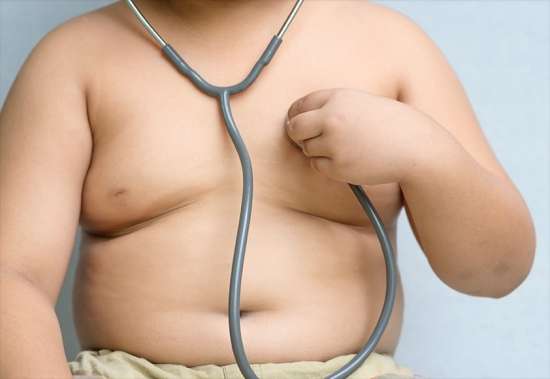Study finds obese children at risk of serious illness

A unique New Zealand study has found that obese children are showing signs from a young age that they are at risk of developing serious weight-related problems, such as Type 2 diabetes, heart, and liver disease.
It is the first study to show the prevalence of these risk factors in obese New Zealand children.
The study gives a snapshot of the health and wellbeing of a group of obese children in Taranaki. Over 200 children and teenagers aged 4 to 16 years took part in a 12-month intervention programme called Whānau Pakari, which involved regular home visits from a health professional.
Whānau Pakari means "Healthy self-assured whānau who are fully active". The programme involves support from a multi-disciplinary team of health professionals to help participants make healthy lifestyle changes.
When the tamariki entered the programme, they had medical tests and physical assessments for disease markers – signs they could be on their way to developing weight-related problems.
Researchers found:
- 75 percent had signs of inflammation, increasing long-term heart disease risk
- 40 percent had physical signs of high risk for Type 2 diabetes
- 47 percent had at least one abnormal liver function test
- 11 percent had abnormal blood pressure
- 50 percent snored four or more nights a week, and breathing pauses during sleep had been witnessed in 20 per cent – both suggestive of obstructive sleep apnoea.
"We knew these findings were likely to be present in these children given previous studies in other countries," says Dr Yvonne Anderson, a paediatrician and co-author of the study.
"What was concerning was how common they were from a young age."
Children as young as five had risk factors for Type 2 Diabetes and signs suggestive of obstructive sleep apnoea.
"These children are not just carrying a bit of extra weight - they also have health indicators that can be life-limiting if left unaddressed," says Dr Anderson.
There were surprisingly few differences between Māori and Pakeha children in terms of risk for weight-related illness.
"However, Māori and those most deprived are over-represented in child obesity statistics throughout New Zealand, and we need to reach these whānau and support their journey to better health and wellbeing," Dr Anderson says.
Nationally, an estimated 85,000 children aged 2-14 years are obese, and about 4,500 in Taranaki, according to latest New Zealand Health Survey.
"Obesity is everyone's problem and we all need to be part of the solution," says Dr Anderson. "If we are going to make a difference to those most affected by obesity, services that they feel comfortable with, and that fit in with their lives, are key."
Taranaki's Whānau Pakari programme included one-to-one family support, group sessions, physical fitness checks and fun weekly activity sessions, such as cooking sessions, physical activity and virtual supermarket tours.
Whānau received advice and support from a dietitian, psychologist, physical activity advisor, and a healthy lifestyles co-ordinator as well as doctors.
The study was a collaboration between Taranaki District Health Board, Sport Taranaki, and the Liggins Institute, with funding from the Health Research Council.
The study was published in the Journal of Paediatrics and Child Health.
More information: Yvonne C Anderson et al. Prevalence of comorbidities in obese New Zealand children and adolescents at enrolment in a community-based obesity programme, Journal of Paediatrics and Child Health (2016). DOI: 10.1111/jpc.13315


















